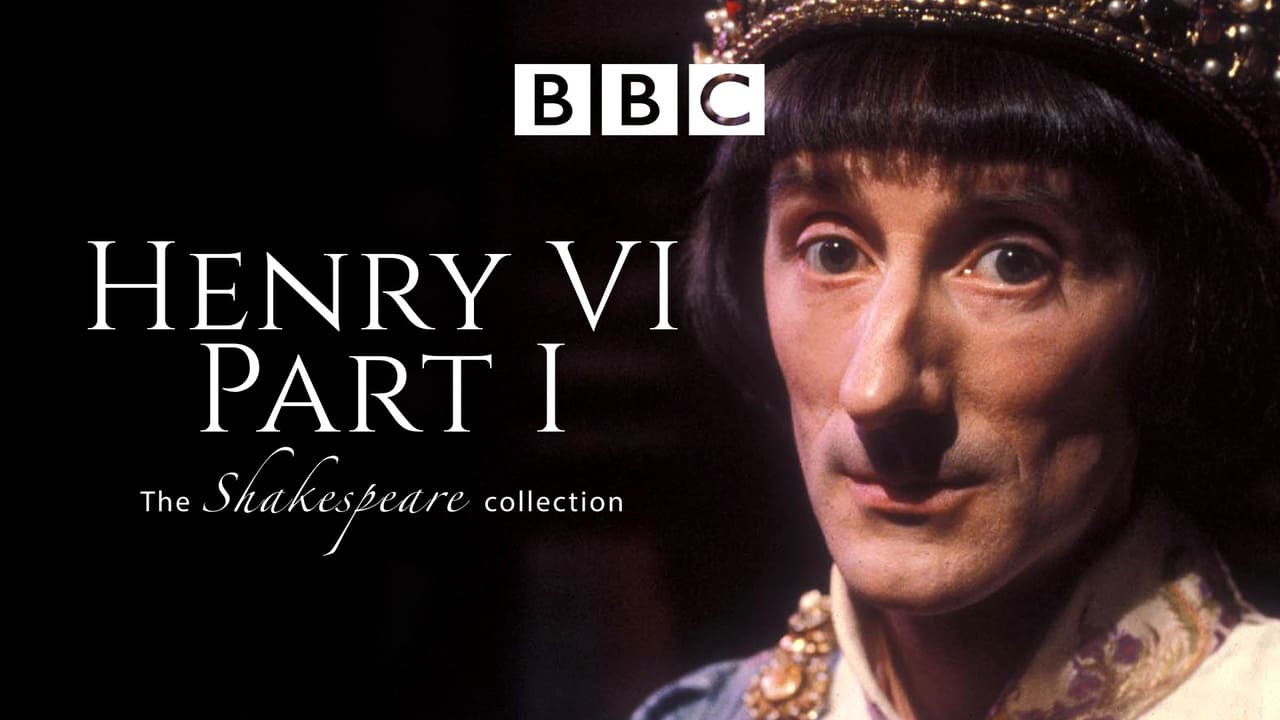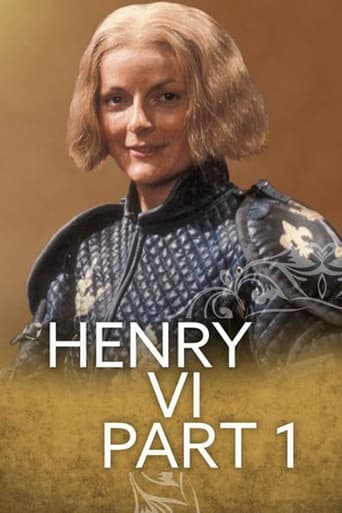Sharkflei
Your blood may run cold, but you now find yourself pinioned to the story.
KnotStronger
This is a must-see and one of the best documentaries - and films - of this year.
Frances Chung
Through painfully honest and emotional moments, the movie becomes irresistibly relatable
Skyler
Great movie. Not sure what people expected but I found it highly entertaining.
Dr Jacques COULARDEAU
We are entering the realm and reign of the last Lancaster king of the red rose against the white rose of York. This rivalry is costing England a lot: the successive defeats in France with the final death of Talbot, Senior and Junior, the latter in the arms of the former, the former the grave of the latter, the latter enhearsed in the embrace of the former. Another red rose supporter negotiates a wife for his king who still is a child, at the most a rather young teenager. And at the same time Richard of York who has been reinstated in his dukedom and made regent of France is forced by the clergy to accept a compromise with Charles VII, a compromise that is meant to be humiliating and binding under feudal law and oath. What the English forget is that this long one hundred year war has created something that is far from feudal: national feeling and pride in France with the change in alliance of the Duke of Burgundy who plunges England into defeat when he sides with the King of France. Shakespeare makes fun of Joan of Arc and makes her pregnant of who knows who in the French court, many names are uttered and none prevails. But it is not sure he understood the real national feeling that emerged from this long historical episode covering four or five generations (life expectancy down to hardly twenty with the Black Death raging at the time. […] But the play is full of battles. The misery of war is represented I guess by the setting made up of old planks and boards, old disarrayed doors and other recuperated disparaged flotsam of some shipwreck retrieved from the Thames, the whole shabby construction in the shape and form of a central space surrounded by what would be houses, city walls, or any other urban building. It is mostly an all-purpose décor for the miserable dealings of the English crown with a situation they cannot even control since they are deeply divided and ready to riot at any time. The French king accepts the compromise imposed onto him on the advice of his counselors that he will be able to break it any time he wants, which is more than true since then the English crown and the regent of France, the Duke of York, first of all will have other errands to run and secondly other predators to take care of as well as other preys to gobble up, starting with this king of no dignity, authority and prestige. This production chose an actor, slightly too old for this first part, but so meager and so locked up onto and into himself, unable of any empathy or physical openness, that he looks like a teenager for sure, nearly effeminate, certainly not the siege of power and force. He is the perfect fence made of spiky chicken wire to keep the roaming scavenging beasts of prey away though not the flying vultures smoothly gliding and soaring overhead. […] But the play is in many ways hilarious. Hilarious in this Henry VI that looks like some library rat cornered by the light and baffled by the promise of a woman he will call his wife. Hilarious with the innumerable running in and out, out and in of the various English and French soldiers with a few in between like the Burgundians or some other turncoats and volatile allies. Hilarious in the way they present Joan of Arc at first and the use of French words like Pucelle, and when they use an English word they come down to maid, which is a nice euphemism for her virginal state, at least today, maybe less in Shakespeare's time. Hilarious in the fake trial, the appearance of the "father," if he is, while she claims she is of noble descent, and her pleading for pardon and pity with arguments like being in child and trying to explain who the father is with multiple men who could be or have been. Hilarious in nearly every single scene that is made trite not out of spite but because they are trite with narrow minded people and obstinate asinine caricatures of soldiers, nobles or plain human beings.Only one scene stands out though probably too long, especially since it is repeated as if we had not understood: it is the confrontation between Lord Talbot and his son John Talbot about saving their skins, or at least the skin of one to be able to get a vengeance or revenge. It is in a way empathetic though the boy seems stubborn and too feudal to be true. […] The noble families of England and France are so intertwined and inbred that they are all English and French and they are all cousins of any rank. That makes such scenes like this one when acted properly, and it sure is the case, very heartfelt but it does not erase the sorry aftertaste they have: ridiculous values, vain glory, in many ways fake ethics and yet ethics nevertheless. They sound more pitiful and even pathetic than human, humane, sensitive and in any way sensuous or sensual. Manly sensual but sensual nevertheless. Impossible here. It is all prefabricated, standardized. When Shakespeare introduces some desire of a man for a woman, for example Henry VI for Margaret, it is some lascivious innuendo and when the Earl of Suffolk desires the same woman for his king it is purely perverse: to negotiate her freedom against her marriage with Henry VI so that he, the Earl of Suffolk, will be able to manipulate the king through his wife, and take advantage of the queen in the back of the king. In many ways disgusting. That's not tragic at all but extremely sinister and melodramatic.Dr Jacques COULARDEAU
Balthazar-5
As some other reviewers have noted, this production of one of Shakespeare's longest plays is very much 'enclosed' and presented on an abstract set. It is, for me , futile and irrelevant to speculate whether this was a creative or financial decision, but it does not invalidate the film. What we are getting is a record of a production of Henry VI Pt1 not a film of the events of the same play in 'real' locations.For me, the production is a real curate's egg, but before commenting on that, I want to make a few observations about the play itself. In most of Shakespeare's plays there is a main driving narrative into which the Bard weaves his unique and wonderful insights into the human condition. This - apparently very early work (ascribed to ~ 1592), there is a melange of interlocking 'stories', and, structurally it seems more like, for example, 'Hannah and her Sisters' - that is a treatise on the inter- relatedness of things. It was hence written several years before the better-known and more celebrated Henry V, and in it's denouement, it is not so very different - with the King finally marrying a French princess to join the two nations in harmony (although it, and they, didn't).It seems that scholars now regard this play as a collaborative work to which Shakespeare contributed but did not dominate. I was, nonetheless hugely impressed with the way in which the various narrative threads are joined together, and there are several exquisite scenes. In spite of the representation of Henry VI himself as weak and effeminate, his scenes ring with gentle wisdom in their optimism. By contrast, there is real venom in the scenes between Winchester and Gloucester. But the real jewel is the key scene (Act 4 Sc 5) in which Lord Talbot/Earl of Shrewsbury's son John comes to the aid of his father in an impossible military situation. Their dialogue on the place of valour and protective love of father for son is immensely moving and full of irony and the kind of insight into the human condition that we come to expect from Shakespeare.So what of the production itself? Stylistically, is is virtually flat, with just the occasional close up for asides to break the sense that the director wanted to do no more than show the production 'from the front row'. So, ultimately, it stands and falls on the characterisations, the acting and the mise en scene. Trevor Peacock makes a creditable Talbot, Frank Middlemass is suitably venomous as Winchester/Cardinal Beaufort, David Burke makes a fine Gloucester/Lord Protector, and Bernard Hill is suitably Machiavellian as the Duke of York.Clearly the casting of Peter Benson as Henry VI himself is controversial, to say the least. But this is difficult as the play presents events that take place over a 15+ year period during which Henry ages from 8 years old to at least 25. Benson would have been nearly 40 at the time of the production so we can only really regard his characterisation as 'symbolic'. And for me, at least, it works very well. The French characters fare less well... Charles the Dauphin is all smirks and smiles, but carries no weight. Worse - indeed the major weakness for me is Brenda Blethyn's Joan la Pucelle (Joan of Arc) who is saddled with a ridiculous Yorkshire accent. But, in a way, she is written as a sort of pantomime villainess, and only comes alive at the hour of her death.As long as one doesn't compare the production with the great Welles Shakespeare adaptations or suchlike, this Henry VI Pt 1 works fine. But it isn't cinema....
tosha-2
Shakespeare is always great (even Titus Andronicus is great).This version -- or rather, this imagining -- of Shakespeare is horrid, however. It's embarrassingly low-rent. For what should have been filmed as "the definitive productions of Shakespeare," the first tetralogy are pathetically presented in a horrid avant-garde style that may have worked on a short-run on stage, but filmed for all time just make one embarrassed that this was the best they could do.Fie, FIE, Aunty Beeb, and fie on the director and set designer and costume designer.It makes me weep that THIS is what they did.
brice-18
The BBC TV Shakespeare hadn't a lot to spend on settings, and none could be more basic than this, with rickety doors representing the gates of Orleans and other cities. There's also a lot of doubling, which means that, e.g., Tenniel Evans as the French general reappears within seconds as the brave Duke of Bedford. Yet the complex plot is unravelled with wonderful clarity, thanks to fine speaking which does full justice to the young Shakespeare's verse, shrewd casting and Jane Howells' spirited direction. Trevor Peacock's staunch Talbot, Frank Middlemass's baleful Wichester/ Cardinal Beaufort and David Burke's sturdy Gloucester, Lord Protector, stand out. Joseph O'Conor, veteran Derek Farr and Bernard Hill are excellent, and if Brenda Blethyn as Joan La Pucelle is too much the pantomime principal boy, she goes movingly to her terrible end. Peter Benson seems rather old for the supposedly youthful King Henry, but speaks beautifully. I can hardly wait for Part 2 (like this, now available on DVD).


